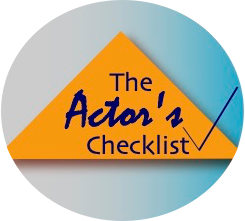
Why Audience Development Matters
Audience development is crucial for career longevity, creative freedom, financial stability, and networking opportunities for performing and media artists. A dedicated audience provides sustainable support through ticket sales, merchandise purchases, and other revenue streams. It also allows artists to experiment and take creative risks, knowing they have a base that will support them. Additionally, audience feedback is valuable for artistic growth and refinement. Furthermore, a strong audience base increases visibility, making artists more attractive to agents, producers, and collaborators.
Establishing a Strong Online Presence
- Professional Website: A professional website is essential for showcasing your work, bio, contact information, and upcoming events.
- Social Media Engagement: Use platforms like Instagram, TikTok, YouTube, and Facebook to share behind-the-scenes content, performance snippets, and personal insights. Tailor your content to each platform’s audience. Be consistent with your brand voice and visual aesthetic.
- Content Creation: Regularly produce and share high-quality content that reflects your artistic style and personality. Use a content calendar to maintain consistency.
Crafting a Unique Brand Identity
- Visual Consistency: Develop a cohesive visual style across all platforms, including color schemes, fonts, and imagery.
- Signature Style: Define your unique artistic style that sets you apart from others in your field.
- Brand Story: Create a compelling narrative about your journey and artistic vision.
Engaging With Your Audience
- Interactive Content: Host Q&A sessions, live streams, or virtual meet-and-greets to connect directly with fans.
- Community Building: Foster a sense of community among your followers through consistent interaction and shared experiences.
- Email Marketing: Develop a newsletter to keep your audience informed about upcoming events, releases, or projects. Offer incentives to sign up. Segment your list to tailor messages to different segments of your audience.
Collaborating and Networking
- Cross-Promotion: Collaborate with other artists or influencers to reach new audiences.
- Industry Connections: Attend events, workshops, and conferences to build relationships within your industry.
- Strategic Partnerships: Align with brands or causes that resonate with your artistic values.
Optimizing for Discoverability
- SEO Techniques: Use relevant keywords in your online content to improve search engine visibility.
- Hashtag Strategy: Utilize trending and niche-specific hashtags to increase your content's reach.
- Platform-Specific Optimization: Tailor your content to the algorithms of different social media platforms.
Providing Value to Your Audience
- Educational Content: Share tutorials, tips, or insights related to your craft.
- Exclusive Offerings: Create special content or experiences for your most dedicated fans.
- Consistent Quality: Maintain a high standard in all your public-facing work and interactions.
Leveraging Data and Analytics
- Audience Insights: Use analytics tools to understand your audience demographics and preferences.
- Performance Metrics: Track engagement rates, follower growth, and content performance to refine your strategy.
- Adaptive Approach: Be willing to adjust your tactics based on data-driven insights.
Live Performances and Events
- Live Shows: Perform at venues, festivals, and events to connect with your audience, promote your work, and build your brand.
- Meet-and-Greets: Host meet-and-greets, workshops, or masterclasses to provide exclusive experiences for your fans.
- Event Promotion: Promote your live events through social media, email newsletters, and local advertising to attract new audiences.
Specific Tactics by Discipline
- Actors: Focus on creating standout audition tapes, network with casting directors and build a strong online presence.
- Musicians: Focus on live performances, use platforms like Spotify and SoundCloud, and create music videos.
- Dancers: Create high-quality videos of your performances and share them on platforms like YouTube and Instagram. Participate in dance challenges.
- Comedians: Share short clips of routines on platforms like TikTok or Instagram Reels and perform at open mic nights.
- Writers: Build an email list, engage with readers through newsletters and online communities, and self-publish or share excerpts online.
- Digital Media Content Creators: Establish a consistent posting schedule, create high-quality content, and engage with audiences.
Monetization Strategies
- Diversify Income Streams: Explore multiple revenue sources, such as ticket sales, streaming royalties, sponsorships, workshops, or online courses.
- Crowdfunding: Use platforms like Kickstarter or GoFundMe to fund projects and involve your audience in the creative process.
- Merchandise: Sell branded merchandise to increase visibility and revenue.
Key Takeaways
- Consistency: Regularly produce valuable content and engage with your audience.
- Authenticity: Be yourself and let your personality shine through.
- Adaptability: Be willing to try new things and experiment with different approaches.
- Professionalism: Treat your career as a business, with attention to detail and a strong work ethic.
Utilizing Free and Low-Cost Tools
Use free tools like Google Analytics, social media analytics, and email marketing platforms to track your progress and refine your strategy. Platforms like TikTok have become essential for music promotion, allowing songs to go viral and reach new audiences.
By implementing these strategies and staying engaged with online communities, performing artists and content creators can effectively build and nurture a loyal audience, paving the way for a successful and fulfilling career.
